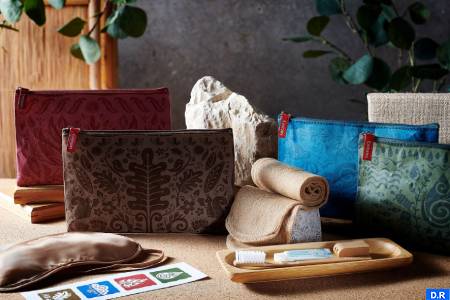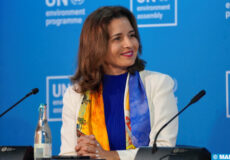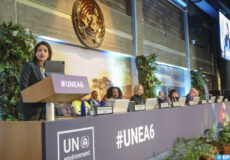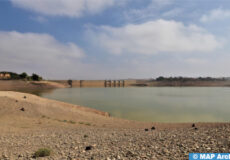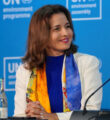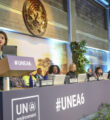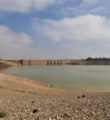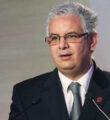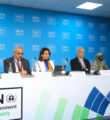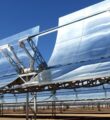Environmental Initiatives: Five questions to Khalfan Al Salami, General Manager of Emirates Airlines in Morocco
Rabat – On the occasion of the International Environment Day, Khalfan Al Salami, General Manager of Emirates Airlines in Morocco grants an interview to MAP.
In this interview, Al Salami talks about the various measures taken by this airline to respect the environment and cites some actions undertaken in favor of the protection of biodiversity.
1. Emirates Airline has a sustainability policy which has an objective to mainly respect the environment. What are the main areas you focus on within your environmental strategy?
As a leader in the aviation, the Emirates Group recognises that environmental responsibility is core to our long-term business success. We’re committed to minimising the environmental impact of our operations across all our businesses and activities, including our supply chain. We aim to meet the needs of our customers and communities while using energy and resources efficiently, minimising waste and emissions, and operating our assets in the most environmentally responsible manner.
The airline’s environmental strategy focuses on three areas: reducing emissions, consuming responsibly, and preserving wildlife and habitats.
Regarding reducing emissions, Emirates is committed to operate its fleet in the most efficient, responsible way possible, cutting fuel consumption. In addition to its own operational efficiency efforts, its partnerships with air navigation service providers have also been key to implementing fuel
and time-saving routes.
On the Ground, Emirates is investing in solar power systems to generate clean electricity at its major facilities in Dubai including the Emirates Engine Maintenance Centre, Emirates Flight Catering, and most recently, the Emirates Sevens Stadium. These installations produce savings of over 4 million kilogrammes of carbon dioxide emissions annually.
In addition, Emirates is trying an electric bus for six months starting this week to ferry passengers from remote stations and can run up to 100km on a single charge. These are completely carbon free and operate on an intelligent energy saving system.
2. What about fuel conservation and efficiency? Are there any specific measures taken regarding this field?
We are committed to taking progressive steps forward in our sustainable journey. Investment in efficient aircraft and smarter flying techniques that minimise fuel
consumption across our fleet demonstrates our proactive leadership in environmentally efficient air travel. We only operate a passenger fleet of Airbus A380s and Boeing 777s, and together with our Boeing 777 freighters, and our fleet age is well below the industry average. A modern wide-body fleet delivers lower engine and noise emissions, helping us advance our objective of reducing our carbon footprint. We also work closely with air traffic management authorities from around the world, including Morocco, to implement best practices in flight operations to help reduce fuel burn.
Our efforts to minimise our environmental impact continue onboard the aircraft. Cutting down on unnecessary weight carried helps us to save fuel. For example, we use lightweight cargo containers, and optimise the amount of potable water loaded for each flight based on the planned passenger load and distance to fly.
3. What are the decisions taken by your company to ensure a better waste management?
Emirates is supporting the topic of the World Environment Day 2022 “Only One Earth”, with onboard and ground efforts that will make a significant difference.
When it comes to the waste management, Emirates’ in-house team of sustainability professionals contributes from the start. Following the waste management hierarchy, the team prioritises waste prevention before determining whether or not things can be reused.
If not, it is re-cycled, and the final alternative is to dispose of it responsibly.
Under this direction, plastic straws and stirrers were replaced with responsibly sourced paper and wooden alternatives. A customer favourite, Emirates’ cosy sustainable blankets in Economy Class are made from 28 recycled plastic bottles each. By the end of this year, Emirates will have saved 150 million single-use plastic items from landfill from these initiatives.
4. How do you manage to join well-being and environment on board?
As said previously, our internal team of sustainability works constantly to provide eco-friendly products and services which join well-being to sustainability. Thanks to their creative efforts, Emirates has introduced new amenity kits in the Economy Class and which are reusable. The new packs are made of washable kraft paper and include long-lasting travel essentials made of eco-friendly materials. Rice paper makes up 90% of the packaging
for the dental kit and socks. The toothbrush is constructed from a mix of wheat straw and plastic, while the socks and eyewear are created from recycled rPET (recycled polyethylene terephthalate).
Kids products, mainly the complementary toy bags, baby amenity kits, and soft toys are all manufactured from recycled plastic bottles for the airline’s youngest passengers. The swing tags for the bags, kits, and toys are produced from recycled cardboard, and the print is done using non-toxic soy-based inks, keeping the product’s complete life cycle in mind.
Economy Class paper menus were replaced with digital menus in April 2020, saving 44 tonnes of paper per month and supporting Emirates’ overall efforts to reduce unnecessary weight, save fuel, and reduce emissions. Emirates’ passengers use instead the free onboard Wi-Fi to check the menu on their phones.
Where possible, Emirates explores every opportunity to upcycle and recycle. Glass and plastic bottles are sorted on board before being sent to a recycling plant in Dubai. As a result, each month, Emirates and Emirates Flight Catering divert about 150,000 plastic bottles and 120 tonnes of glass away from landfills.
5. Does the company organize actions for the environment’s protection out of the business context? Can you give us some examples? (Preservation of biodiversity, awareness, etc…?)
Yes, indeed. The beauty and biodiversity of our world is an inspiration for travel, and Emirates is committed to doing our part to preserve natural habitats and stop the illegal wildlife trade which is driving endangered species to the brink of extinction.
For over 20 years, Emirates has helped to support a sustainable and balanced ecosystem at the DDCR through an ongoing investment of close to USD $8 million. Representing close to 5 per cent of Dubai’s total land area, the DDCR protects the incredible wildlife and vegetation within the vibrant UAE ecosystem.
Emirates also supports the protection of Australia’s wilderness and bush through the conservation-based resort Emirates One&Only Wolgan Valley, located in the World Heritage- listed Greater Blue Mountains region.
As a major international aviation business, Emirates is also committed to combatting the illegal wildlife trade. It is a founding signatory of the 2016 Buckingham Palace Declaration, and member of the United for Wildlife Transport Taskforce. Emirates has zero tolerance on carrying banned species, hunting trophies or any products associated with illegal wildlife.



